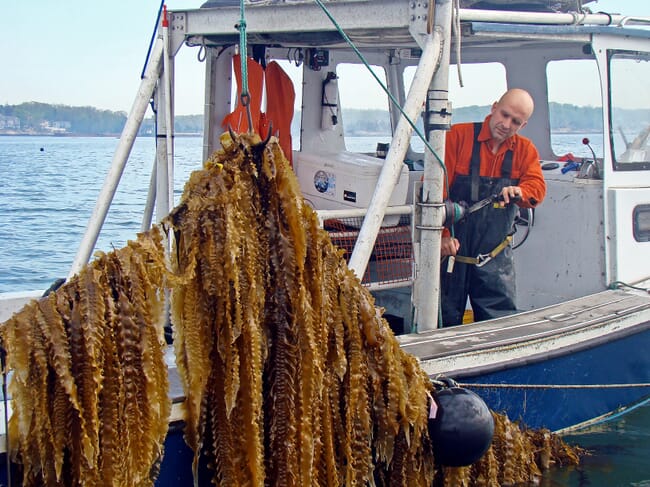Under the banner of Stronger America Through Seafood (SATS) – an industry coalition that advocates for increasing Americans’ access to healthy, sustainable, affordable and domestically produced seafood – the letter was signed by over 70 aquaculture advocates, including American scientists, environmental advocates and industry leaders.
Margaret Henderson, campaign manager of Stronger America Through Seafood, said: “As our federal leaders seek innovative solutions to address the climate crisis, aquaculture, one of the most resource-efficient methods for protein production, should be considered as a tool to help feed our growing population responsibly while protecting our planet. Through federal action, the administration and congress can establish a clear regulatory pathway for permitting offshore aquaculture that would support a sustainable seafood future, increase the resiliency of our food systems, and create new jobs in communities nationwide.”

Dr Kevan L Main, director of Mote Aquaculture Research Park, said: “If we are going to feed the growing world population, we must continue to advance the development of sustainable marine fish farming technologies. Protein production from sustainable aquaculture systems is more efficient and less damaging to the environment than other animal protein production.”
As the letter to President Biden elaborates: “As your Administration works towards the goal of net zero carbon emissions no later than 2050, we the undersigned ask that you consider sustainable aquaculture production as a tool to help mitigate climate change, as well as contribute towards feeding a growing population. According to the United Nations, human population is projected to reach 9.7 billion by 2050 and the global demand for healthful animal protein will rise by as much as 88 percent. Numerous reports published in the last three years call for future animal protein production to shift towards seafood, including aquaculture.
“Environmental impacts of animal protein production, such as energy use, greenhouse gas (GHG) emissions, land use, water use and biodiversity impacts per functional unit of protein can be greatly mitigated through well-managed aquaculture, including offshore aquaculture in marine waters. Well-managed marine aquaculture development could increase the resiliency of our food systems to future environmental, social, and economic shocks, including the impacts of climate change.
“Certain types of marine aquaculture, such as seaweed farming, also have the potential to sequester carbon and may be used as a tool to mitigate global warming by removing CO2 from the atmosphere. In addition to carbon sequestration, aquaculture can provide other ecosystem services, such as improving water quality, regulating ocean acidification, protecting coastlines, providing habitat for other species, and more.
“Further, by prioritizing domestic aquaculture in your Administration’s climate policies, you will support the growth of an American seafood community that is resilient to economic and climate changes and is part of a holistic approach to a more diverse, sustainable food strategy. We the undersigned American scientists, industry leaders and environmental advocates ask that you elevate the discussion around sustainable aquaculture production in your Administration’s climate policies. We are eager to share our experience and knowledge with you and your staff wherever possible. Please contact any of us to schedule time to discuss further.”
The letter, including the full list of signatories, can be accessed here.




